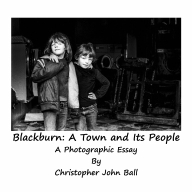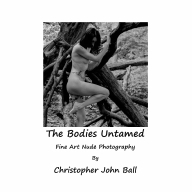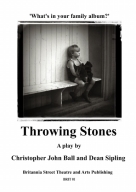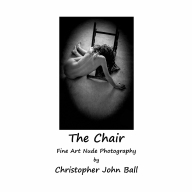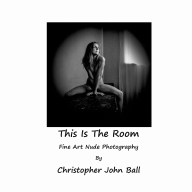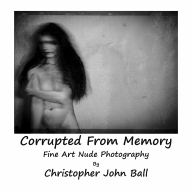
Infanta by Ralph Gibson.
Published by Takarajima Books. ISBN-10: 188348913X

Tweet
Ralph Gibson was born in 1939, in the United States, and is an acclaimed, award winning, fine arts photographer. Widely published and exhibited, his images grace the collections of over 100 museums worldwide. He was first introduced to the power of the camera
at an early age. In the 1950's his father worked at Warner Brothers film studios, becoming an assistant director to Alfred Hitchcock. Here Gibson would hang around the film sets watching westerns being shot. Later he found himself being called upon to be an extra and bit part player. This led him to became familiar with the use of light: "I still vividly recall the bright carbon-arc lights used to expose the slow orthochromatic film of those days. My sense of contrast must surely have been born during this period as well as the idea of a strong camera presence." At the age of 16 he signed up to join the US Navy who, as luck would have it, decided to send him to a photography school in Florida. "I took it seriously and experienced for the first time in my life a sense of self." It was whilst serving on his first ship that he had an epiphany: "I looked up at the sky and screamed, 'Someday I am going to be a photographer!' Forty years later I am still screaming." Upon leaving the service, in 1959, Gibson found himself furthering his studies in San Francisco. "I began to understand the language of abstract expressionism, jazz and beat poetry." In what was one more lucky break for Gibson, he was taken on as an assistant to legendary photographer Dorothea Lange. The most important thing that he learned, during the time he spent as assistant to Lange, was that the content of an image was much more important than the technique that created it.
Gibson's favourite subjects are the human figure, sculpture and architecture, sometimes in combination. The human body, as seen via his camera, often
becomes sculpted, as if out of marble, immutable. Influenced by the films of Bergman and the 'nouveau roman' writings of Alain Robbe-Grillet, Gibson's photographs are somewhat reminiscent of Bill Brandt, Edward Weston and Minor White and can be best described as seductive, existential, visual metaphors. The images he creates are designed to generate a deliberate emotional detachment - emphasised by his much imitated use of extreme close-ups, strong contrasts and fragmented isolation. These lyrical images are often dark and brooding, incorporating fragments that offer up glimpses of tactile dreams, often with mysterious undertones, building layers of narrative meaning through contextualization and surreal, erotic juxtaposition. Such has been their impact that they have become a source of inspiration to artists since the early seventies when he published 'The Somnambulist' - the first of a trilogy of books. Over the years his work has found a much wider audience via its use on record album covers, such as the inner sleeve of Joy Division's 'Unknown Pleasures'. Still devoted to creating images, via his trusted Leica, on traditional 35mm film, composing in camera, without resorting to cropping in the darkroom, Gibson has become, for many, the fine art photographers 'photographer.'
The book's title, Infanta, we are told, was inspired by a visit Gibson made to the Museo del Prado, in Madrid. Here he was taken by the 1656 painting by Diego
Velázquez entitled 'Las Meninas' or 'The Maids of Honour'. This famous painting depicts a scene, within the Madrid court of King Philip IV of Spain, of the young Infanta Margarita surrounded by her entourage. What is notable about this artwork is that Velázquez has included himself within the image, looking outwards and beyond the pictorial space to where a viewer of the painting might be standing, as he works on a large canvas - Gibson was struck by the existential ambiguity of the painting. He sees the body of work, showcased within Infanta, as an attempt to explore "our fascination with seeing ourselves reflected in the psychological mirror of the human body." For Gibson, the nude is a canvas onto which an artist can project almost anything: "In photographing the nude, I can get the figure to reflect whatever idea I am engrossed in."
First published in 1995, this 120 page, hard-backed and dust-jacketed, monograph opens with a 5 page introduction, entitled 'Venus Reclaimed', by former editor of the magazine 'American Photo', Alexandra Anderson-Spivy which is both informative and respectful of the work. We are then treated to a single
page artist's statement entitled 'The Mirror of the Psyche' followed by over 100 stunning monochromatic images, made between 1988 and 1994. These are displayed one per page, with a border that allows for plenty of space to breathe, the print quality, whilst perhaps not up to today's standards of subtlety, is first rate for the time. The book concludes with a witty four page essay, by novelist, essayist and former stripper Mary Gaitskill, entitled 'Naked Women' that explores what it is to be a woman, nakedness and being seen. Infanta is a book that one feels compelled to keep returning to, discovering something new with each visit, and will delight anyone who loves both Gibson's work and photography in general.
Review by Christopher John Ball
*****Rating
*Review Star Ratings If you have a photography related book you would like reviewing, including self-published material, email details to chris@cjballphotography.co.uk and I will happily consider doing so. The review will be hosted, free of charge, on this website and posted via Twitter and Facebook. All I ask in return is that a link be placed on your own site to the review on this website and, if used in any promotional material, I am credited as Christopher John Ball.
July 2024 Several books, featuring Christopher John Ball's photographs, are now available through Amazon or click on an image below to purchase via secure payments on lulu.com

Tweet


